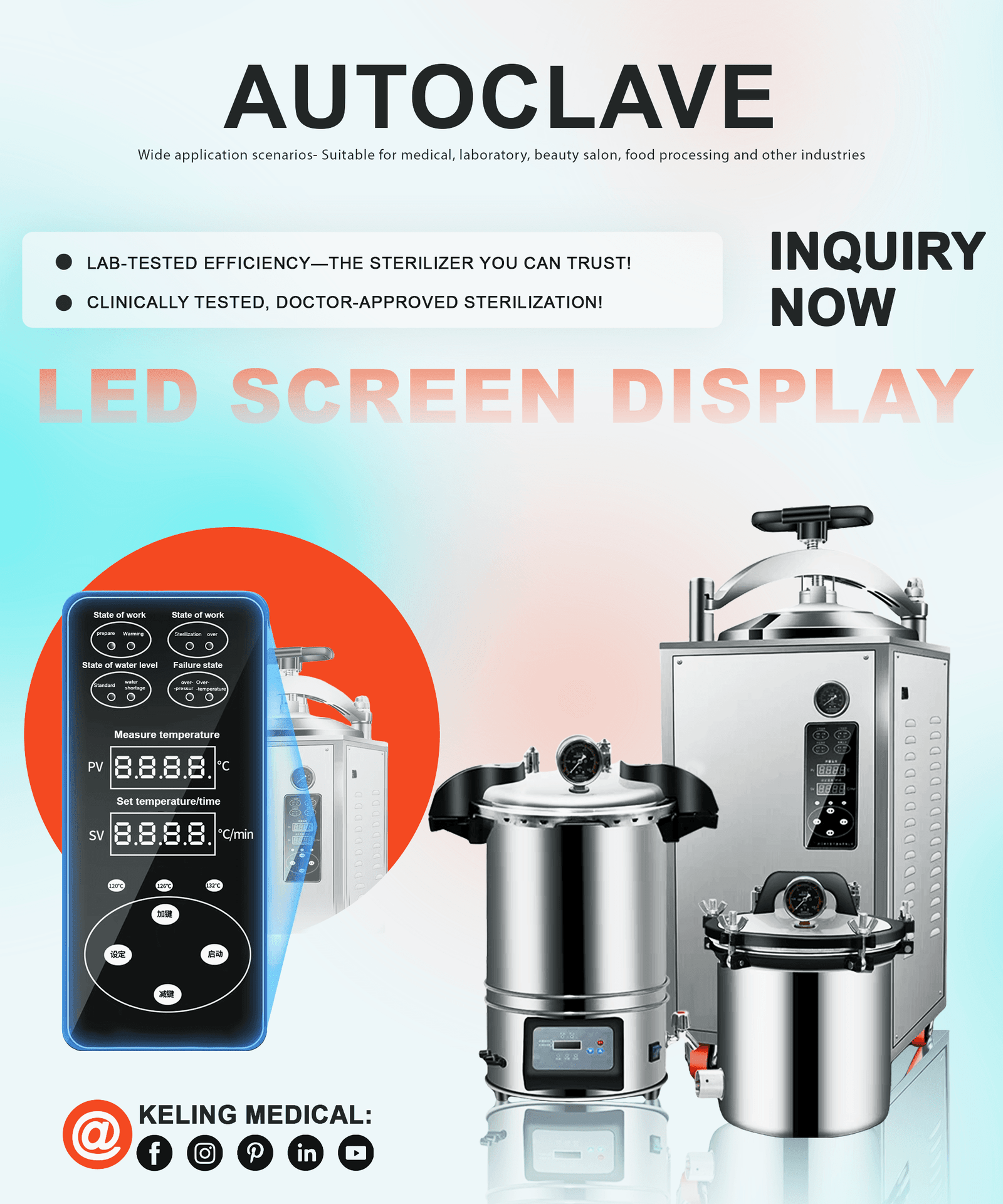
Medical device distributors and procurement professionals alongside small business owners must understand commercial autoclave features and applications for optimal operation. This article outlines the unique characteristics of commercial autoclaves and their essential features to help you select the best model for your requirements.
Commercial autoclaves differ from industrial autoclaves because they vary in dimensions and capacity according to their specific applications.
Commercial Autoclaves:
Designed for smaller-scale operations.
These compact autoclaves combine ease of use with functionality for clinics, labs and small business environments.
These autoclaves specialize in processing small quantities of tools and materials for sterilization.
Industrial Autoclaves:
Built for large-scale production and processing.
Industrial autoclaves have greater size and capacity which makes them appropriate for aerospace, food manufacturing, and medical device production.
For a more detailed comparison, refer to our guide on Industrial Autoclave Machines.
The specific features in commercial autoclaves meet the requirements of small-scale operations. Below are the most notable features:
The compact dimensions of commercial autoclaves enable them to fit into facilities that have space constraints.
Their portability enables straightforward installation and relocation when necessary.
These autoclaves offer user-friendly experiences through straightforward control panels and automation processes.
Operators need little training to use these autoclaves which saves both time and resources.
These models operate on significantly less energy compared to their industrial counterparts.
These autoclaves help smaller businesses and clinics save on operational expenses.
Shorter sterilization cycles ensure quick turnaround times.
The autoclave excels in settings where equipment needs regular reuse.
The machine offers customizable temperature settings along with pressure adjustments and cycle length options to handle diverse materials.
Ensures precise sterilization for sensitive equipment.
Commercial autoclaves serve multiple purposes across different industries and operational environments. Here are their primary applications:
Medical facilities utilize commercial autoclaves to sterilize surgical instruments along with dental tools and various medical devices.
Ensures compliance with health and safety regulations.
The sterilization process of glassware and petri dishes along with additional laboratory instruments.
The autoclave helps eliminate contamination from biological waste while simultaneously creating sterile media solutions.
Veterinary clinics along with tattoo shops and beauty salons depend on commercial autoclaves to keep their environments hygienic.
Ensures the safety of clients and staff.
Educational institutions use commercial autoclaves to sterilize laboratory equipment in schools and universities.
Supports research and teaching activities.
The selection process of a commercial autoclave involves multiple important considerations. Here’s what you need to consider:
Determine how much equipment or materials need routine sterilization.
Select a model that accommodates both your available space and operational needs.
Select an autoclave that is compatible with the materials you require sterilization for like metal, glass or plastic.
Opt for models with simple maintenance requirements.
Regular servicing ensures long-term reliability and efficiency.
Evaluate the features and benefits of the autoclave while keeping your budget in mind.
For pricing insights, refer to our article on Industrial Autoclave Price.
Confirm that the autoclave operates according to established industry standards and sterilization regulations.
Small businesses and medical facilities need commercial autoclaves because they deliver dependable and effective sterilization. Commercial autoclaves combine compactness with user-friendly operation and energy-saving performance making them ideal for businesses with space constraints and limited resources.
Understanding the features and applications of commercial autoclaves empowers you to choose one that meets your operational requirements and stays within your financial limits. Keling Medical provides premium commercial autoclave solutions that meet your specific needs if you are evaluating their purchase.
Commercial autoclaves are smaller, designed for low-capacity operations, and are ideal for clinics and laboratories. Industrial autoclaves are larger and built for high-volume production in industries like aerospace and food manufacturing.
Regular maintenance is recommended every 6-12 months, depending on usage. Follow the manufacturer’s guidelines for servicing.
Most commercial autoclaves can handle materials like metal, glass, and some plastics. However, always check the compatibility of your specific model.
Yes, commercial autoclaves are designed to consume less energy, making them cost-effective for small businesses and clinics.
You can contact us at Keling Medical for high-quality commercial autoclave solutions.
For more information about commercial autoclaves or to request a quote, contact us today:
Email: inquiry@shkeling.com
WhatsApp: +8618221822482
Website: https://autoclaveequipment.com/
Our team at Keling Medical is here to assist you with all your commercial autoclave needs.

The autoclaving process serves as an essential sterilization practice utilized across medical, laboratory, and research facilities to protect glassware and instruments through effective sterilization. High-pressure steam eliminates pathogens during this

The autoclaving process serves as an essential sterilization practice utilized across medical, laboratory, and research facilities to protect glassware and instruments through effective sterilization. High-pressure steam eliminates pathogens during this
The autoclaving process serves as an essential sterilization practice utilized across medical, laboratory, and research facilities to protect glassware and instruments through effective sterilization. High-pressure steam eliminates pathogens during this
The autoclaving process serves as an essential sterilization practice utilized across medical, laboratory, and research facilities to protect glassware and instruments through effective sterilization. High-pressure steam eliminates pathogens during this
The autoclaving process serves as an essential sterilization practice utilized across medical, laboratory, and research facilities to protect glassware and instruments through effective sterilization. High-pressure steam eliminates pathogens during this
The autoclaving process serves as an essential sterilization practice utilized across medical, laboratory, and research facilities to protect glassware and instruments through effective sterilization. High-pressure steam eliminates pathogens during this